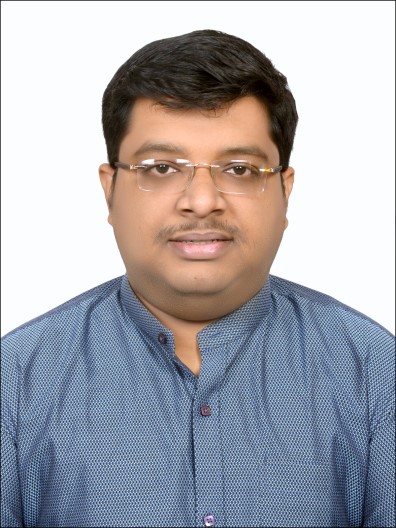Staff Members
Home »
Postdoctoral fellow
Name: Sanki Biswas
Location: C1 Lab 310 Auckland Park Kingsway Campus
Department of Geology Postdoctoral Fellows Staff Members
Contact Details:
Tel: +27 (0)11 559 4728
Email: sankib@uj.ac.za
About Dr Sanki Biswas
Dr Biswas is a Postdoctoral Research Fellow in the Department of Geology, University of Johannesburg, South Africa. He is currently specializing in Applied Geology with an emphasis on organic petrology and geochemistry of coal and shale. He completed his Ph.D. in Geology from Indian Institute of Technology (Indian School of Mines), Dhanbad (India) in 2021, with a focus on the source rock characteristics, hydrocarbon generation potential, and paleo-depositional environment of Permian and Paleogene organic-rich coal/shale deposits of India. He found these areas very interesting as coal and shale are the major sources for unconventional hydrocarbon resources that will fill the future energy demand. In addition to this, they are also an alternative source for trace elements (TE), rare earth elements (REE), and critical raw materials (CRMs). He completed his master’s degree in Geology (M.Sc.) at Department of Geology, Indian Institute of Technology Kharagpur (India). The subject is very interesting and important, as it looks at some of the most essential issues in society today including energy sources and sustainability, climate change, the impacts of development on the environment, mineral resources, and natural hazards.
Research Interests:
Dr Biswas’s current research mostly focuses on the distribution and concentration of major, trace and rare earth elements in coal from the Soutpansberg Coalfield, South Africa and assessing the paleoenvironmental conditions using organic petrography and multiple organic and inorganic geochemical proxies.
Supervisors:
Prof. Nikki Wagner & Dr. Marvin Moroeng
Recent publications:
- Biswas, S., Varma, A.K., Kumar, M. and Saikia, B.K.. Multi-analytical approach of provenance signatures and indication of marine environment in coal and shale bearing sequence from Makum Coalfield, India. Arab. J. Geosci. 14 (2021): 2183. https://doi.org/10.1007/s12517-021-08569-z
- Biswas, S., Varma, A.K., Kumar, M., Mani, D., Saxena, V.K. and Mishra, V. Influence of geochemical, organo-petrographical and palynofacies assemblages on hydrocarbon generation: A study from upper Oligocene coal and shale of the Makum Coal Basin, Assam, India. Marine and Petroleum Geology 114 (2020): 104206. https://doi.org/10.1016/j.marpetgeo.2019.104206
- Varma, A.K., Biswas, S., Patil, D.J., Mani, D., Misra, S. and Hazra, B. Significance of lithotypes for hydrocarbon generation and storage. Fuel 235 (2019): 396-405. https://doi.org/10.1016/j.fuel.2018.07.111
- Misra, S., Das, S.K., Varma, A.K., Mani, D., Kalpana, M. S., Ekblad, A. and Biswas, S. Multi-proxy approach on the hydrocarbon generation perspective of Barjora Basin, India. Marine and Petroleum Geology 112 (2020): 104108. https://doi.org/10.1016/j.marpetgeo.2019.104108
- Misra, S., Varma, A.K., Hazra, B., Biswas, S. and Samad, S.K. The influence of the thermal aureole asymmetry on hydrocarbon generative potential of coal beds: Insights from Raniganj Basin, West Bengal, India. International Journal of Coal Geology 206 (2019): 91-105. https://doi.org/10.1016/j.coal.2019.03.008
- Misra, S., Varma, A.K., Das, S.K., Mani, D. and Biswas, S. Thermal controls of lamprophyre sill on hydrocarbon generation outlook of shale beds in Raniganj basin, India. Journal of Natural Gas Science and Engineering 56 (2018): 536-548. https://doi.org/10.1016/j.jngse.2018.06.028
Google Scholar: https://scholar.google.com/citations?hl=en&user=igEgbuMAAAAJ
